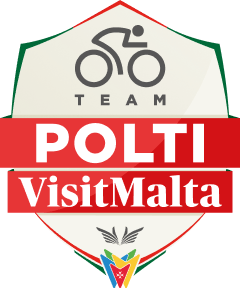Giacomo Garavaglia: “My mother is a nurse, I see her tiredness when she returns from work”
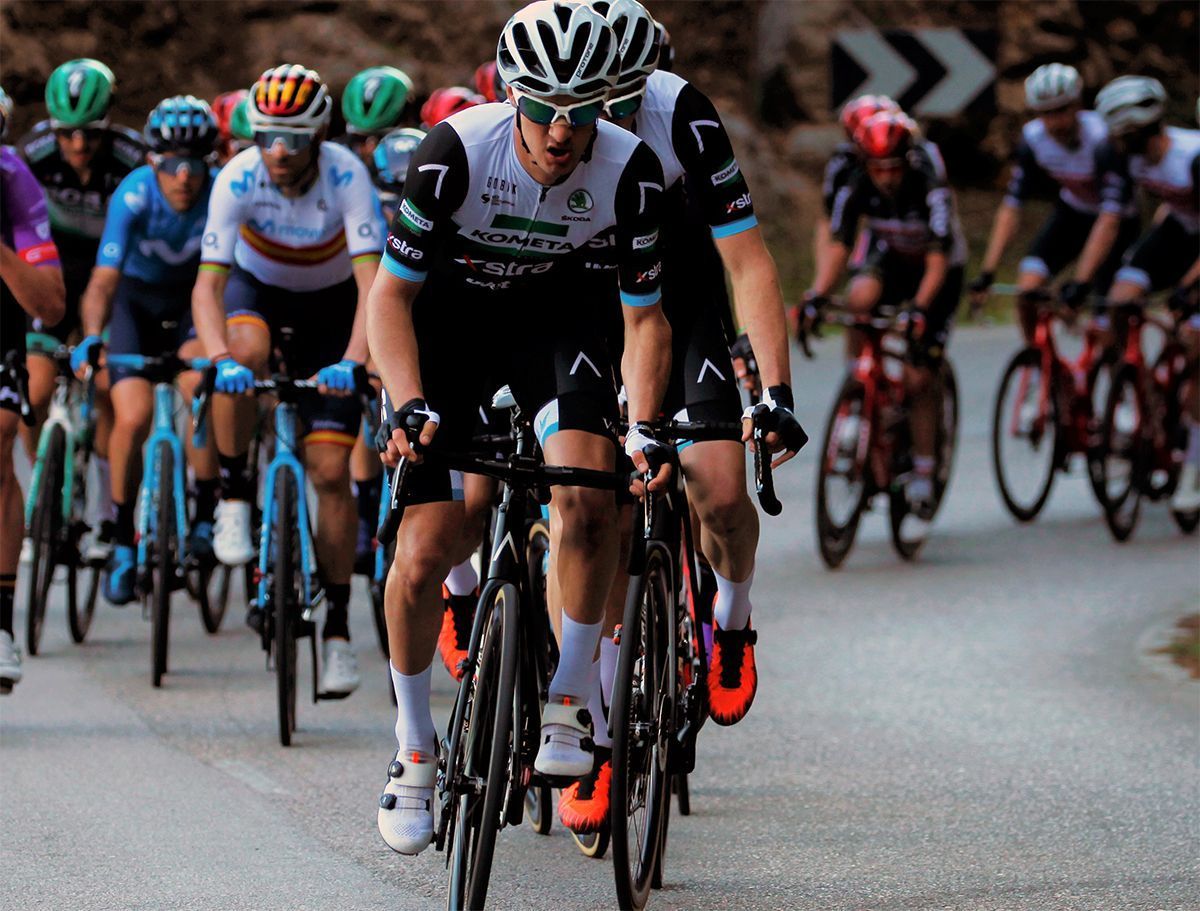
Giacomo Garavaglia has been one of the mainstays of the Kometa-Xstra Cycling Team at the start of the season. He made his debut in the Challenge of Mallorca with an exciting eleventh place in the first of his trophies. But the circumstances of the race and several falls in later commitments ended up diminishing his physical performance and subtracting everything he could bring. Garavaglia faced the Istrian Spring Trophy with renewed enthusiasm and energy, recovered from his injuries and with a route where he could show his skills regularly.
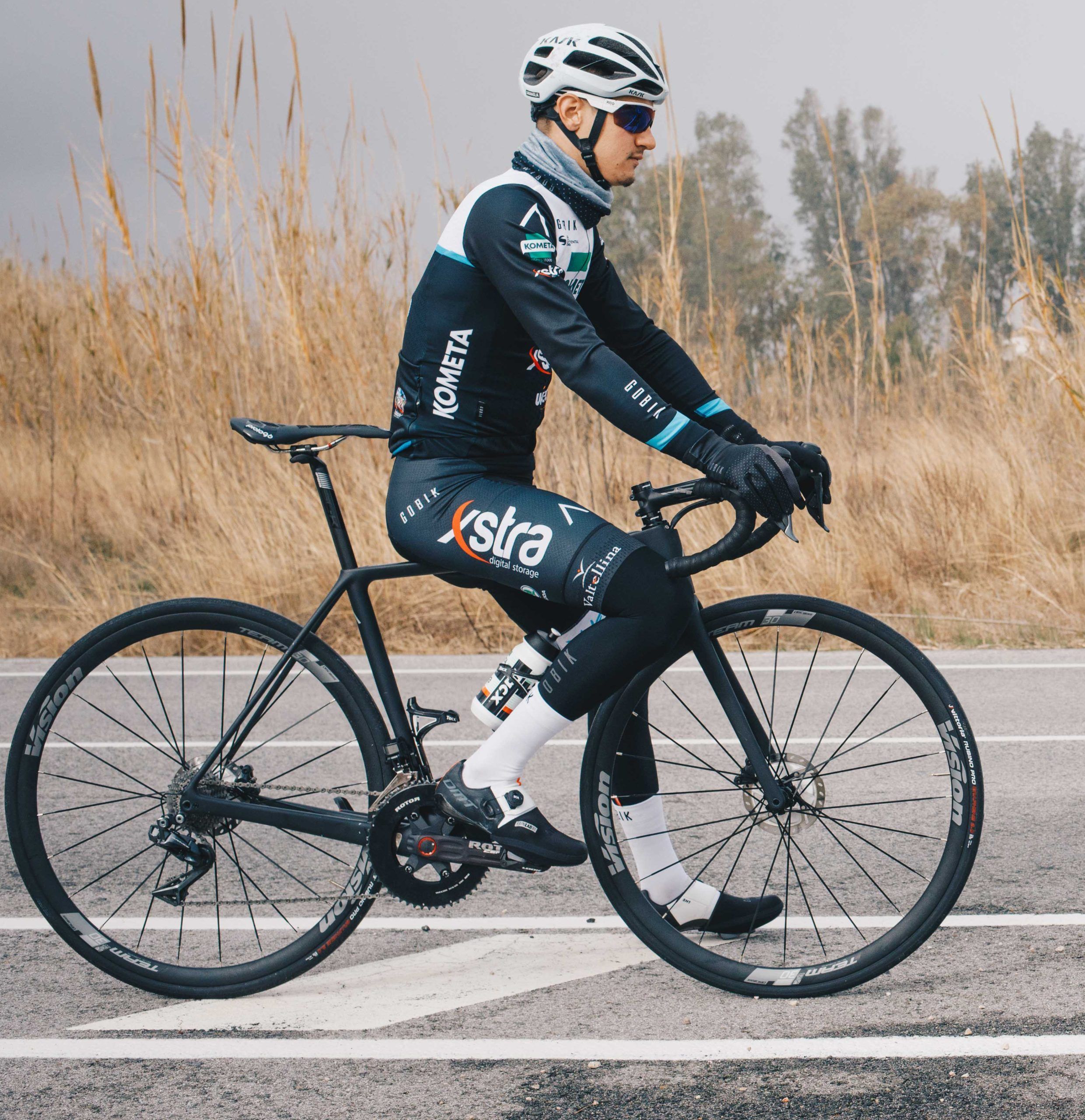 The postponement of the Croatian event forced him to a forced standby while he lived the daily complex derived from the coronavirus in a family home where they live it intensely; not in vain is his mother, Gabriella, a nurse at the Giuseppe Fornaroli Hospital in Magenta. We chatted with the Lombard rider about the current situation, about his first months of professional life… or about his passion for architecture, a world in which he began his university studies.
The postponement of the Croatian event forced him to a forced standby while he lived the daily complex derived from the coronavirus in a family home where they live it intensely; not in vain is his mother, Gabriella, a nurse at the Giuseppe Fornaroli Hospital in Magenta. We chatted with the Lombard rider about the current situation, about his first months of professional life… or about his passion for architecture, a world in which he began his university studies.
You live in Magenta, Giacomo, west of Milan and south of Busto Arsizio. The whole of Lombardy is a heavily guarded area where the coronavirus has spread a lot. How do you live this situation?
Not simply, of course; especially because my mother is a nurse and she tells us what she is experiencing first-hand. I see her tiredness when she returns from work and I understand that the situation is critical. And we cannot forget the fact that one tenth of those infected are health workers. As a zone, at the moment, it’s an area that’s pretty much under control.
How do you deal emotionally with this whole situation? How do you deal with the confinement and those consequences of not being able to see your friends, your partner or other relatives? Or process that information that comes to you from acquaintances, or from acquaintances of acquaintances, who have fallen ill or even may have died?
Well… Today, with the technology we have, we have enough means to keep in touch with friends and family. If this had happened thirty years ago it would have been much more problematic. And in many ways.
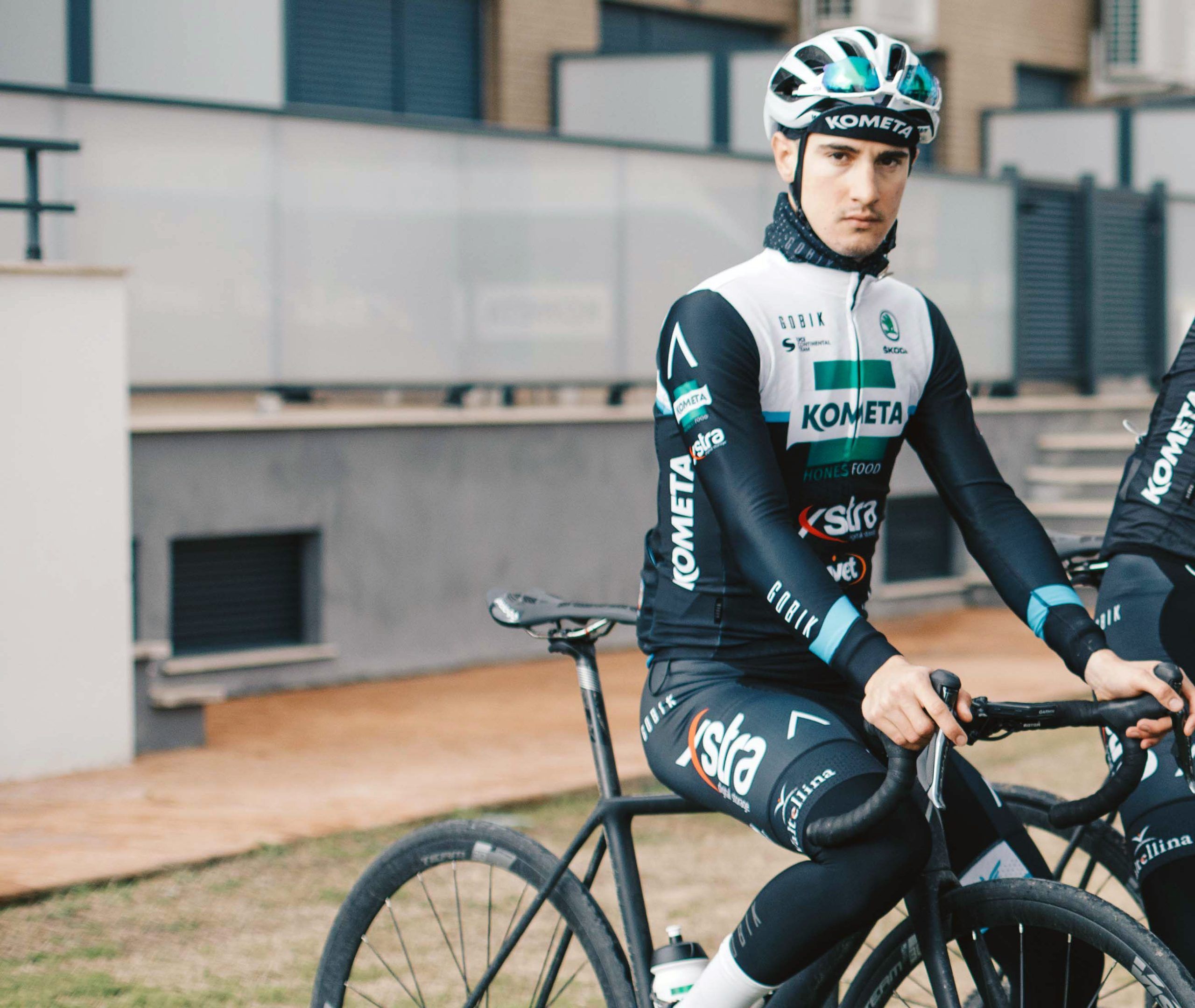
You have competed fourteen days this season, the same as Antonio Puppio and one less than a Daniel Viegas who entered at the last minute in the plans for Valencia. You’ve competed in all the Trophys in Mallorca and on the island you started with an interesting 11th place…
It was certainly a very intense start. I think all of the riders had a great winter and we were in good shape for the Challenge of Mallorca. And I think it showed. Perhaps the most beautiful moment on the island apart from the eleventh place on the first day was the strength and ability and power of the team when we started working in first person to make up time for a breakaway with big names.
… But then in the Comunitat Valenciana the crashes prevented you from exploiting your qualities.
Yes, in the Vuelta I went to the ground during the second stage and this influenced my condition a lot. I suffered a lot. But I didn’t switch off at any time. Not letting go of those ropes was a great help and allowed me to keep competing. In the Vuelta a Murcia we got a great result with Sergio and we must not lose sight of the fact that it was a race with four World Tour teams. It was a very nice performance for us as a team. And personally I am very happy to have helped Sergio defend his position during the second stage.
Then came the tour of Croatia, where and the evolution of events forced to stop the whole calendar .
The trip to Croatia left us a bitter taste because of the suspension of the lap by stages, the Istrian Spring Trophy was a race that for the riders who were there was very interesting to achieve relevant things. But also the suspension was right because of the emergency and the need to go home. And at home we are, doing roll, gym and waiting for all this to happen in the best possible way.
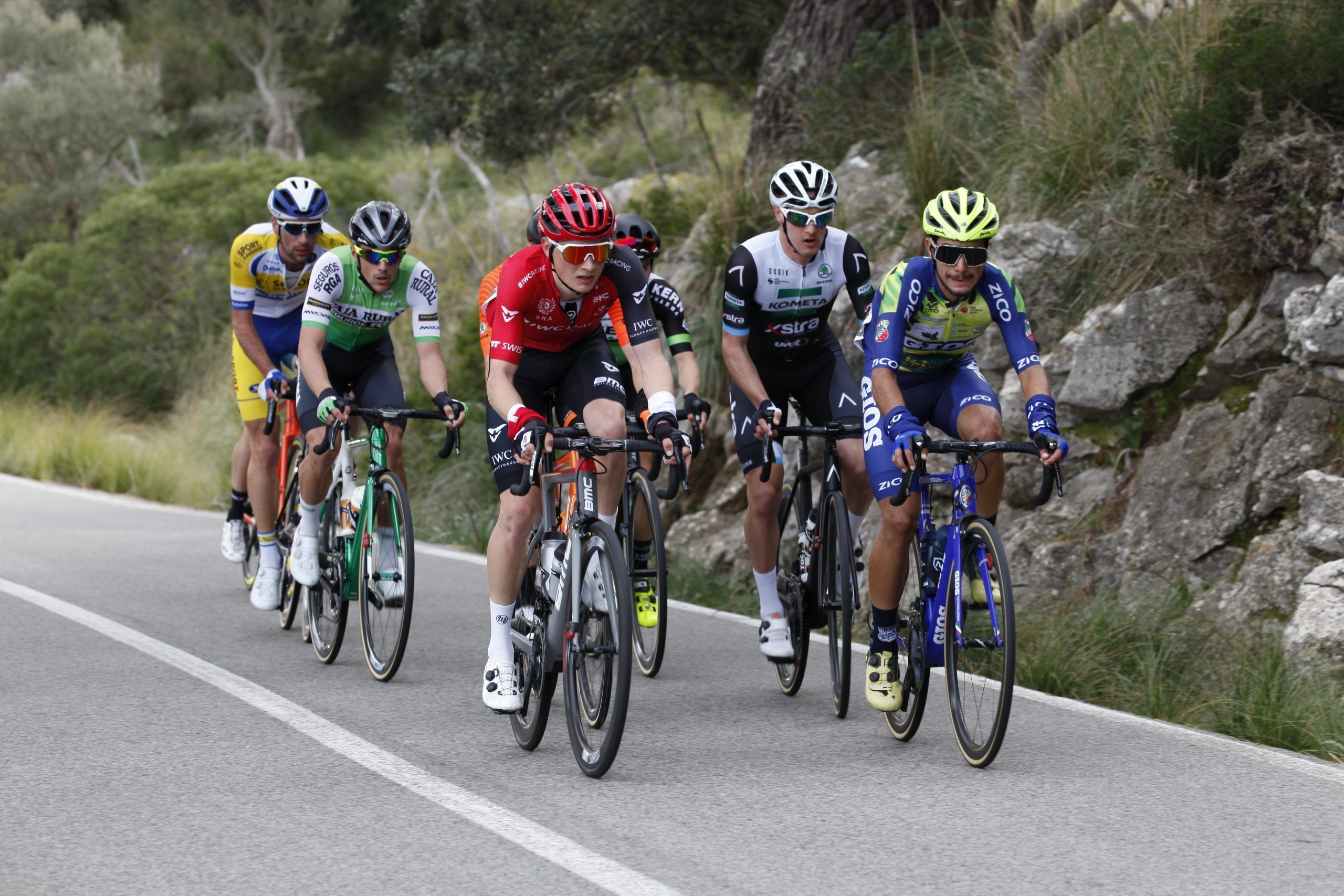
After this period in the professional field, if it is true that the Italian amateur field is very different from the Spanish or other countries and that you had a first-hand opinion of your good friend Stefano Oldani, did anything surprise you or did you not expect it in the professional field?
It’s another world, completely. Compared to the amateur field in Italy, for example, racing is also different. In the professional field they are much more irregular, without a guinness that always repeats itself. When you have World Tour teams among the participants, it’s scary when they start the engine or turn on the gas. It is impressive how they go both on the flat and on the climbs. Yes, it’s another world. Another thing that has surprised me is the attention to detail. Nothing is left to chance. Many small gestures in the overall economy of a stage race or in the more intense training periods at the end are what make the difference.
After this journey in the team and in the professional field, do you have a clearer idea of what kind of rider you think you are, where the work and the development of your career is taking you, in your view?
I think this is something that will still take some time, I’ve still found my true level to be able to say it. I’ve felt good at times when the road has been steep and also at other times when I’ve had to show my top speed? This is something that the passage of time has yet to say.
The measures to contain the coronavirus have stopped all cultural and sporting practices and, in this sense, football lives the same circumstances without competition as cycling. How does a fan of this sport, a Milan fan, live this?
I can live without live football, I don’t really have it as a hobby. Having played football as a child, it’s a sport I like and I like to keep up with Milan’s results. It’s also not an activity that takes up much of my time. But neither am I a football fan who spends a lot of time on it or kills time by playing video games. I’ve never had a Playstation. And now less. I’m very busy with my studies. Next week [Editor’s note: Giacomo refers to the second week of April] I have two exams at the University, telematically. So the free time I have left is mainly spent on books.
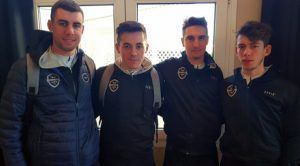 Now you are studying ‘Science motorie e sportive’ (Science of Physical Activity and Sport), but when you started your university studies you did not initially opt for this career…
Now you are studying ‘Science motorie e sportive’ (Science of Physical Activity and Sport), but when you started your university studies you did not initially opt for this career…
No, I started Architecture. I was teaching for a course and a half, but it was very difficult to combine it with cycling and I decided to change. Although Architecture has always fascinated me. And within this, perhaps because my first work in the career was precisely on that subject, the architecture of rationalism. I really liked Le Corbusier. If I have to name an architect, I think that the almost essential choice is that of Renzo Piano because of what he has given to architecture in all his years of professional practice.
To quote Le Corbusier, and without losing focus on cycling, this architect once said that the Dolomites were “the most beautiful architectural work in the world”. As a cyclist and a lover of architecture, what do you think of this statement?
I didn’t know this phrase, but I must say that it fits perfectly. I’ve never had the pleasure of making a retreat, a concentration, in that area; I’ve only been ‘passing through’, so I don’t know it as well as I would like.
If you had to call a mountain pass an ‘architectural work’, what would your choice be?
I would say that Passo dello Stelvio is as majestic as it is a mythical climb. The Stelvio is like naming the Colosseum in Rome or the Parthenon in Athens. Although one of the climbs that I like the most is the Lago di Cancano, in the Valtellina, near Bormio.
(automatic translation, sorry for mistakes)
? Ciclismo González (1 & 4) / Atila Madrona (2 & 3)/ Nicolo Vallone (5)
